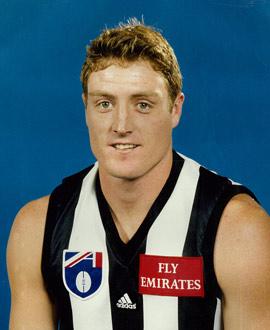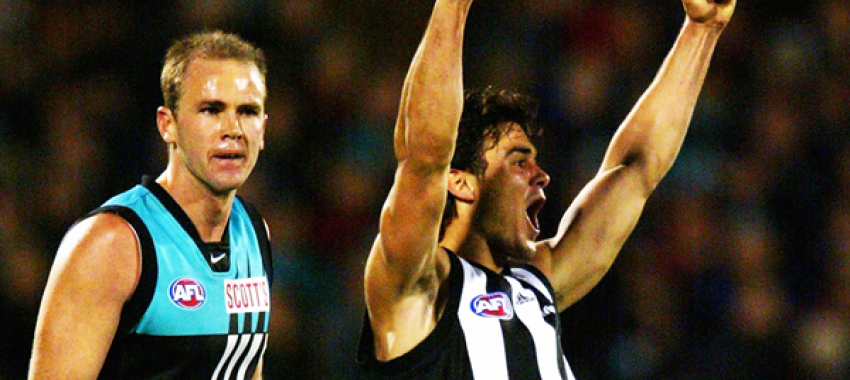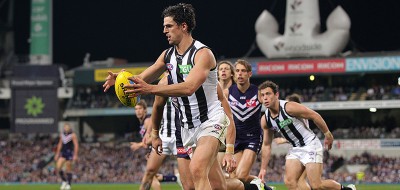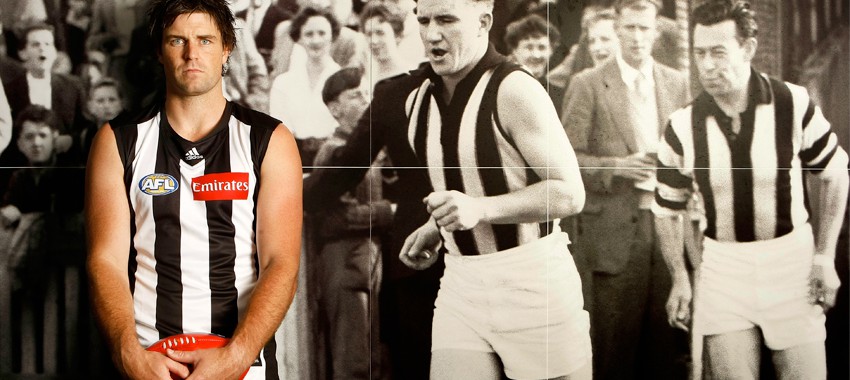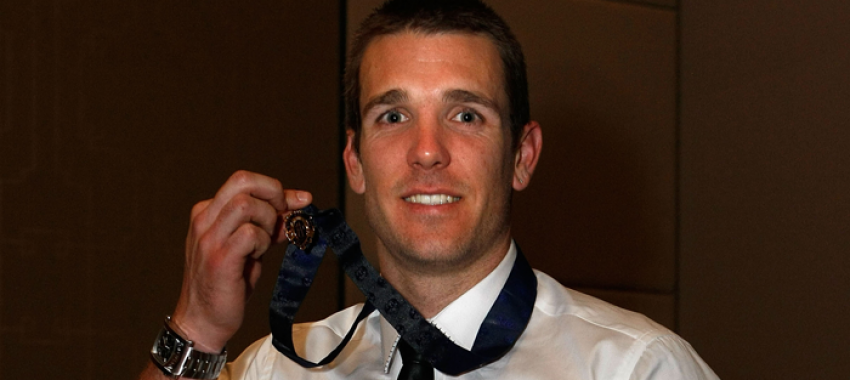Many good judges say that playing as a key forward is the toughest of all positions to hold down on the footy field. And if you can find a good one, you've got a priceless commodity on your hands.
In Travis Cloke, Collingwood had a very, very good key forward indeed. In fact, for a few years there, he was not just the most dominant and powerful forward in the game, but the best contested mark of his generation. He set a new record for contested marks in a season (95, in 2011), won a Copeland Trophy at a young age, was twice named all-Australian and was one of the keys to our 2010 Premiership. He deserves to be ranked as one of the great key position players of the past 50 years.
Only one thing stopped him from being ranked among the absolute elite level forwards - and that was his kicking for goal. While he was a thumping kick generally, and an excellent field kick, he was also prone to spraying the simplest set shots. Over the years he tried just about everything to correct the one glaring weakness in his game, but nothing worked long-term. In the end he - and the fans - just had to accept that flawed goalkicking was part of the whole Travis Cloke package.
And what a package that was. Across his 12 seasons in the black and white, his tally of goals and capacity to drag down important contested marks stamped him as one of the most important and influential players of his era. Ignore the wayward kicking for a moment and look at the statistics: he kicked more goals than all but six players in Magpie history - Gordon Coventry, Peter McKenna, Dick Lee, Peter Daicos, Saverio Rocca and Alby Pannam.
But even more importantly, it's worth remembering that Travis Cloke was not your classic stay-at-home full-forward. He often played as more a centre half-forward or even high half-forward: he had a huge engine and would often present as a leading target for marks on the wing, or even deeper, then wheel on to that famous left-foot for a booming kick into the forward line. So goals alone are not how his legacy should be measured.
So it's the contested marking for which he will be most remembered. Immensely strong with a good leap and remarkably 'sticky' hands, Cloke at his best was almost unstoppable. Across three seasons – 2010 to 2012 – he recorded three of the top 12 highest contested mark counts in a season ever recorded. He could wrestle an opponent out of contention in one-on-one contests, or fly into a pack against three defenders and almost always emerge with ball in hand.
Despite his strength he was very much a gentle giant (though you wouldn't want to have been on the end of one of his bone-crunching tackles), but even then he was rarely looked after by the umpires. Indeed, at times they seemed to penalise him for being so much stronger, and so much better, than most of his opponents. But Cloke rarely complained or remonstrated: he just shrugged and prepared for the next contest.
Football had always been in Travis's DNA, with his father, David, having a celebrated career with Richmond and Collingwood. David’s three sons – Jason, Cameron and Travis - were born within a five-year window, but there was always a belief the youngest might be the best.
Each son had the luxury of choosing between Richmond and Collingwood, but most believed the trio was a package deal. Jason, taken by the Magpies in 2000, said as much after he was joined by Cameron in 2002: "There's still another one to come. Hopefully we can all play at the same club." Richmond launched a late bid to convince Travis that he would be better off at another club. But Collingwood was never going to let this young talent from the Eastern Ranges slip through the net.
He debuted for Collingwood on Anzac Day in 2005, kicking a goal and having 15 touches. All three brothers played in the same match the following week against St Kilda, a one-off moment that Travis would later declare to be one of his most cherished in football. It also provided one memorable passage of play when Jason (No.34) took control of the ball, gave it off to Cameron (No.33) further down the ground, and he send it down to Travis (No.32) deep in attack.
At the end of 2006, the Magpies made the difficult decision to move both Jason (76 games) and Cameron (21 games) on. As disappointed as Travis was, it did not affect his football. Indeed he had an outstanding 2007 season, culminating in a Copeland Trophy win - one of only six who won it at 20 or younger.
From that season on, Cloke's was one of the first names on the Collingwood team sheet each week. A contract standoff between his management and the club caused tensions in 2012, which impacted on the forward’s form. Soon after the 2012 preliminary final loss to Sydney, Cloke signed a lucrative five-year deal to stay at Collingwood, saying that he wanted to remain loyal to the club. He followed it up with a strong season in 2013, finishing third again in the Copeland, winning a second All-Australian berth, and kicked 68.51, narrowly missing out on a Coleman Medal for the second time in three seasons.
Like his father, he had countless kicking coaches - from Saverio Rocca to Ben Dixon – and dealt with psychologists and body movement experts, seeking conventional and not-so-conventional solutions. For a time, he even took to using an iPod and headphones in his training sessions to replicate the noise of the crowd.
But as the game changed in shape, and the influence of power forwards began to diminish, Cloke's impact on games began to drop off through 2014 (39 goals) and 2015 (34 goals). He had one last glorious hurrah in 2016, four goals against Greater Western Sydney, but at the end of the year sought a move to the Western Bulldogs. He had limited on-field impact at the Dogs, but was widely lauded for publicly talking about his decision to take time out that year to deal with depression.
In the end, Travis Cloke will go down as one of the best Collingwood key forwards of the post-war era. If he'd been just a little more accurate in front of goal, his standing would be even higher. But if he'd been more clinical in front of goal, then some other part of the package might have been diminished. So rather than focus on the flaws we can instead celebrate the whole: the extraordinary contribution and wonderful career of one of footy's true nice guys.


